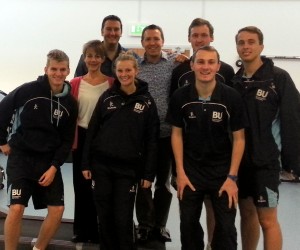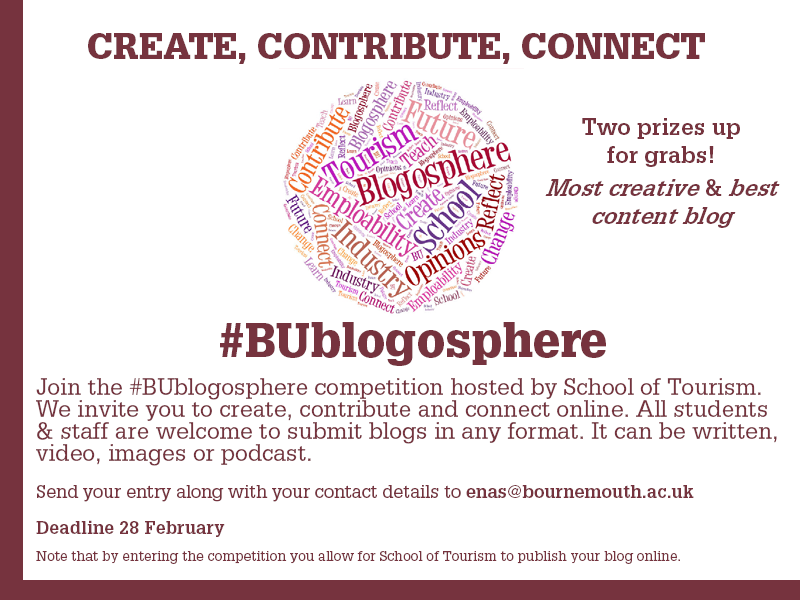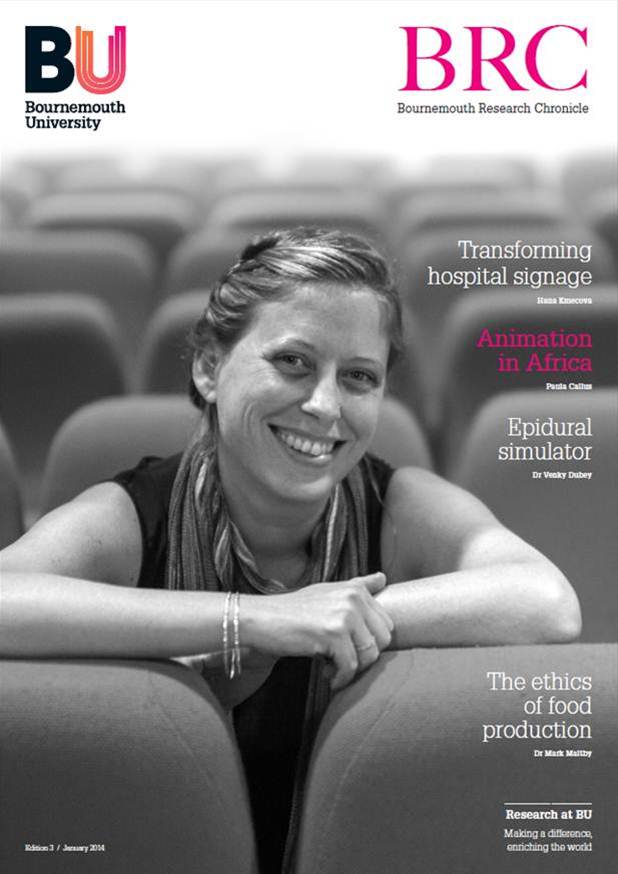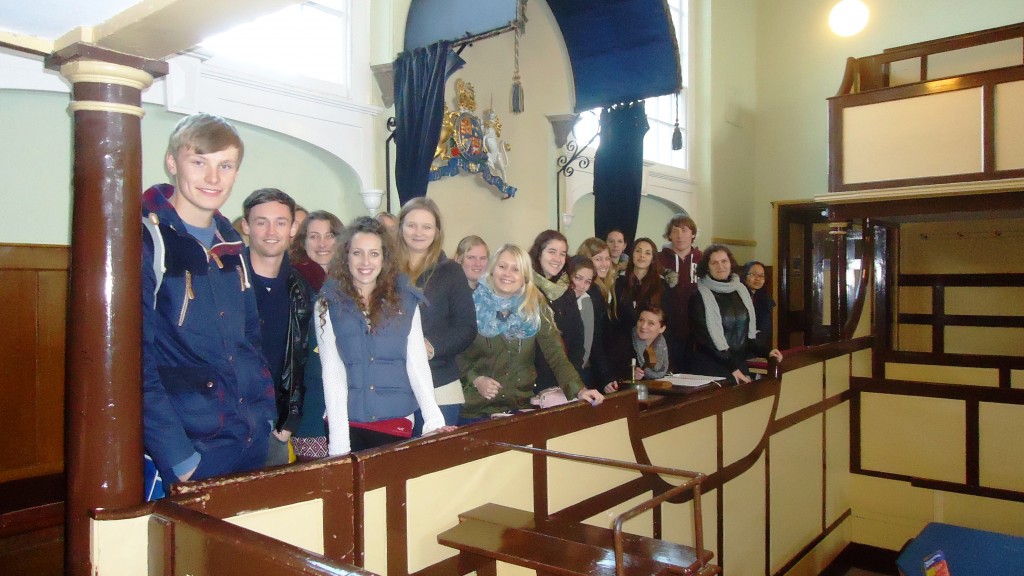Samuel Nyman (Psychology, DEC), Andrew Callaway (ST), and Kelly Goodwin (ST) were awarded Research Development Fund – Small Grant funding for 2013 to conduct a study to promote walking among older people. Over the summer they identified a further fusion opportunity so that students from both schools could be involved. They report their experience here:
Co-creation in the School of Tourism
Our study began with the purchase of pedometers (small device to count walking steps) and actigraphs (small device to count walking steps but can also measure intensity, i.e. if walking or running). These were then used by students in the School of Tourism in a group project. Their task was to recruit 10 older people from the local community to take part in a study whereby they wore the devices every day for 60 days to measure how much walking they did. But this was not just a sports science project to look at whether pedometers or actigraphs reported the same results. It was multidisciplinary in that participants were enrolled into an N-of-1 randomised controlled trial (RCT), whereby each day they took part in a different psychological condition. Each morning participants had to set a goal for the day that was either to increase their walking steps or eat more fruit and vegetables (active control condition). They also had to either wear a pedometer that showed them how many steps they had walked so far that day, or a pedometer that was sealed (and so they would not know how many steps they had walked; another active control condition). These different conditions were based on control theory, that suggests that if people set themselves a goal to walk more, and can keep check on how much they have done, then they will be likely to walk more steps on those days than on the other days (when they had to state a goal for fruit and vegetable intake and could not see how many steps they have done). N-of-1 trial designs are recommended by the MRC framework for developing and evaluating complex interventions and help ascertain whether theories work at the individual level.
This part of the project was completed before the summer of 2013, and provided students in the School of Tourism a group project and a very useful learning experience. Students were posed with a more challenging and rewarding project of engaging with older people with the local community. They also had to contend with the challenges of group work, project management, learning and teaching others to use the objective physical activity monitors, and dealing with the challenges of conducting short-longitudinal data collection in the field. The students helped in the co-creation of new knowledge to test if pedometers or actigraphs were better at measuring walking activity, and in testing whether control theory shows promise as a means of behaviour change at the individual level measured by walking activity.
Co-creation in the School of Design, Engineering and Computing
Before launching into the analysis over the summer, the project team (Nyman, Callaway, and Goodwin) identified a further opportunity to enhance the data collected by the above student group project and provide a further opportunity for fusion.
Andrew Callaway identified that published studies in this area simply compare one measure of physical activity with another, as we had done, with no evidence as to which is the closest to a ‘true’ measure of what really happened (both devices will not be completely accurate). He proposed a further study that compares the two measures of pedometers and actigraphs against a criterion measure – a measure that was known to be truly accurate. This entailed the design and implementation of a laboratory-based study whereby students would walk on a treadmill and have their physical activity monitored by several devices simultaneously, including manual and video-recording of steps walked.
The set up entailed volunteers to walk on a treadmill at different speeds (all comfortable walking paces) with pedometers, actigraphs, and a sensewear armband strapped on them, and a video camera recording their walking plus other volunteers manually counting the number of walking steps performed. You will be surprised how difficult it can be to correctly count the number of steps walked in a two minute period! With the combination of all these measures we should arrive at a close to ‘criterion’ measure to compare the devices with.
Third year students from the BSc Psychology framework who had elected to study the Health Psychology unit volunteered to help with this experiment in the Sports Lab. This was a great learning opportunity for the psychology students as none of them had seen the sports lab before or the equipment used for physical activity monitoring. In the session the students also had the opportunity to engage with two members of staff and five third year student volunteers from the School of Tourism to access their expertise in sports science and performance analysis. Dr Nyman also used the sessions as an opportunity to relate the material from the lecture the day before to the seminar sessions, and to demonstrate to students the output that can be obtained from actigraphs (using TV screens) and what this affords in terms of more nuanced health psychology research questions that can be answered. The students had the opportunity to be involved in the co-creation of new knowledge that will challenge the perceived wisdom of the reliability of objective physical activity monitoring.
Conclusion
After recently completing the laboratory experiment, we now have all the data to begin analysis and writing up. We are pleased with the outcome of the two studies above and feel they are a great example of fusion in terms of cross-school collaboration and co-creation of new knowledge, embedded within existing teaching programmes. Conducting the two studies has also provided us as researchers with new data that will lead to peer-reviewed publications.
We would like to thank the older people and health psychology students that volunteered to help with the studies, and the School of Tourism students that volunteered to help us with the recent laboratory experiment.

Students who helped with the project: Front Row (L to R): Sam Sayer, Emma Rylands, Joe Hill. Second row (L to R): Calum Sharpin, James Baum.
By: Dr Samuel Nyman, BUDI and Psychology Research Centre
Andrew Callaway and Kelly Goodwin, Centre for Events and Sport Research






 A
A




